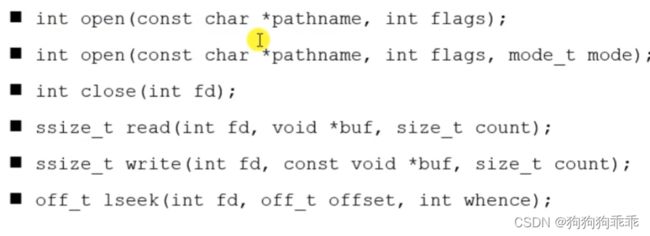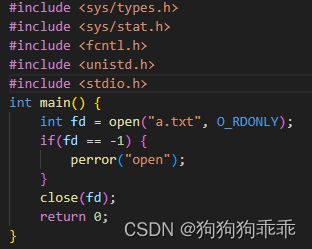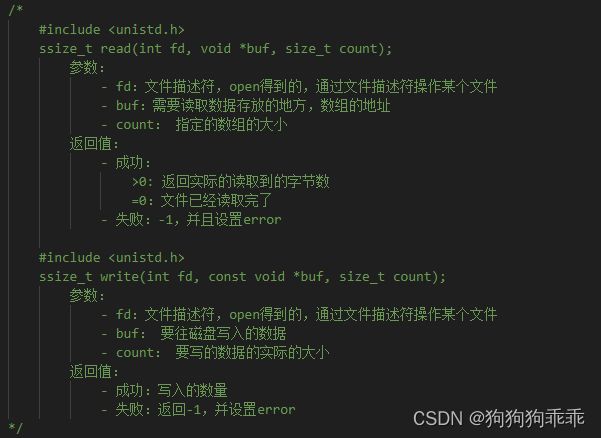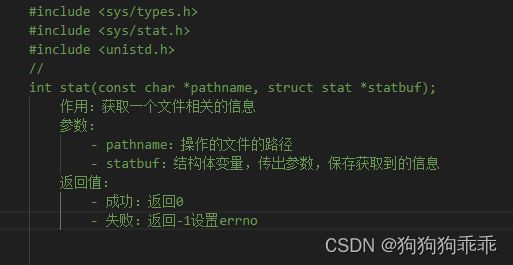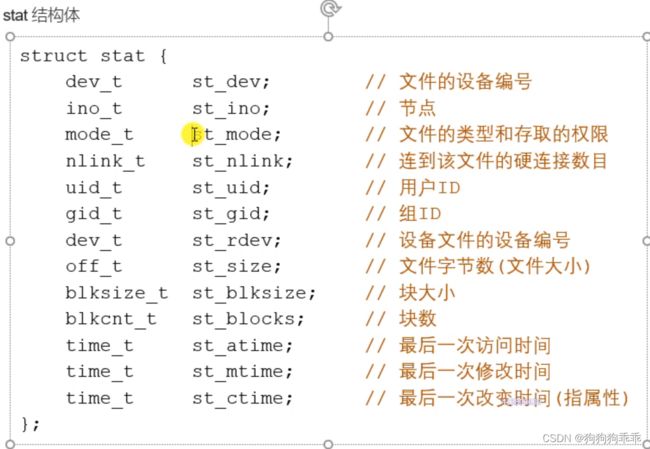- 解锁Linux性能密码:25个实用调优技巧
大雨淅淅
Linuxlinux运维
目录一、引言二、系统资源监控工具2.1top和htop2.2vmstat2.3iostat三、内核参数优化3.1调整swappiness参数3.2优化I/O调度器3.3调整dirty_ratio和dirty_background_ratio3.4启用大页内存(HugePages)3.5调整内核参数net.core.somaxconn四、网络性能优化4.1优化网络缓冲区4.2调整tcp_tw_rec
- CentOS Stream 8 安装Oracle 19C (静默模式)
3301_
centosstrreamlinuxOracle19Coraclecentos数据库
CentOSStream8安装Oracle19C(静默模式)1.提前准备工作说明:必须严格遵守用户规则去创建目录,否则会导致缺少目录权限进而影响安装!安装以下软件包最新版本(注意:如果打算使用32位客户端应用程序访问64位服务器,则还必须安装(如果可用)此表中列出的包的最新32位版本。)[root@Test2CentOSStream8~]#dnfinstallbcbinutilselfutils-
- 使用Kettle定时同步数据库的数据(详细实例操作)
故里2130
包教会专栏数据库
数据库的数据同步、迁移在我们运维软件中,经常使用,而且非常的频繁。同步、迁移数据的工具非常多,比如Navicat、SqlServer等等,甚至很多公司,都是自己写的定时同步软件。今天,我们介绍一款Java开源免费的数据库同步软件,功能非常强大。本节只演示,定时同步数据库的数据,从test数据库定时同步到test1数据库的教程。(坑很多)1.首先下载安装包,进行解压。路径:迅雷云盘2.然后进入目录中
- 【oracle19c静默安装RAC】
sqlboy-yuzhenc
DBAORACLEoracle数据库
目录安装规划软件规划虚拟机规划主机信息网络规划硬盘规划ASM磁盘组Oracle规划用户组和用户软件目录规划整体数据库安装规划虚拟机准备操作系统安装yum源配置openfiler安装安装前准备配置host文件(rac1和rac2)关闭防火墙(rac1和rac2)关闭Selinux(rac1和rac2)安装依赖包(rac1和rac2)修改内核参数(rac1和rac2)配置资源限制参数(rac1和rac
- Linux中es启动成功,windows服务器访问不了的解决方案
码代码的小仙女
笔记linuxwindowselasticsearch
1.在Linux服务器中安装elasticsearch。在bin目录下执行./elasticsearch报错信息:org.elasticsearch.bootstrap.StartupException:java.lang.RuntimeException:cannotrunelasticsearchasrootatorg.elasticsearch.bootstrap.Elasticsearch
- Netty长连接
JIU_WW
nettywebsocketjavatcp
1.长连接的概念目录1.长连接的概念2.Netty对长连接的支持2.1内置协议支持2.2连接状态管理2.3资源优化3.Netty长连接与WebSocket的关系4.实现长连接的两种典型方式4.1基于TCP自定义协议4.2基于WebSocket5.长连接的关键优化策略6.性能对比:Nettyvs传统实现总结长连接指客户端与服务器建立一次连接后,保持该连接持续打开,供多次数据传输使用。与短连接(每次请
- 字节后端面试面经综合分析
阿贾克斯的黎明
javajava开发语言go
目录一、字节豆包后端一面面经解析(一)自我介绍(二)实习项目拷打(三)手撕代码(四)C++多态相关问题(五)智能指针相关问题(六)malloc相关问题(七)mmap相关问题(八)多线程相关问题(九)MySQL存储引擎相关问题(十)Redis持久化相关问题(十一)前沿知识相关问题(十二)反问环节二、字节广告后端一面面经解析(一)自我介绍(二)实习项目拷打(三)文件系统相关问题(四)LinuxIO多路
- linux日志管理_日志系统
Guff_hys
linux运维服务器eclipseide开发语言程序人生
10.1日志系统(系统日志管理)syslog&rsyslog日志:主要用途是系统审计、监测追踪和分析统计。Linux内核由很多子系统组成,包括网络、文件访问、内存管理等。子系统需要给用户传送一些消息,这些消息内容包括消息的来源及其重要性等。所有的子系统都要把消息送到一个可以维护的公用消息区,于是就有了syslog。syslog是一个综合的日志记录系统,它广泛应用于各种类UNIX系统上。它的主要
- 【在Oracle Linux 7 上安装Oracle 19c - 基于ASM存储的单实例数据库】
AllanHwang
Oracleoracle数据库linux
在OracleLinux7上安装Oracle19c-基于ASM存储的单实例数据库前言环境环境准备阶段配置主机名、网络等安装ORACLE先决条件的软件包修改系统参数安装阶段下载软件安装GRID安装ORACLEDBCA建库使用阶段ASM的启动和暂停自动启停手动启停前言记录Oracle学习过程,形成自己的知识体系。目前有部分操作还不清楚具体原理,后期随着学习的深入,逐渐完善本文档。环境系统:Oracle
- Linux上创建SSL证书
太炀
ssllinux服务器
创建没有密码的SSL证书如何为测试服务器创建没有密码的自签名SSL证书-贾斯汀·凯利使用工具OpenSSL基本步骤指南生成私钥通常是RSA私钥opensslgenrsa-outserver.key1024pensslgenrsa:这是OpenSSL的命令,用于生成RSA私钥。-outserver.key:这个选项告诉OpenSSL将生成的私钥保存到名为server.key的文件中。1024:这个数
- Python使用pyobdc库和tkinter框架连接数据库
乙龙
python数据库
要使用pyodbc和tkinter实现动态连接数据库的功能,可以通过以下步骤实现:使用tkinter创建一个图形界面,让用户输入数据库连接信息(如服务器地址、数据库名称、用户名和密码)。通过pyodbc动态连接到数据库,根据用户输入的连接信息建立连接。提供反馈,告知用户连接是否成功,并允许用户进行后续操作。以下是一个完整的示例代码,展示如何实现这一功能:示例代码:动态连接数据库importtkin
- Linux mount命令
A星空123
Linux总结linux运维服务器
Linuxmount命令是经常会使用到的命令,它用于挂载Linux系统外的文件。一、挂载功能介绍挂载方法:mountDECEMOUNT_POINT命令使用格式:mount[-fnrsvw][-tvfstype][-ooptions]devicedirdevice:指明要挂载的设备;(1)设备文件:例如/dev/sda5(2)卷标:-L'LABEL',例如-L'MYDATA'(3)UUID,-U'U
- nuxt常用组件库html-validator应用解析
垣宇
vue.js
html-validator主要用于自动验证nuxt服务器呈现的HTML(SSR和SSG),以检测可能导致水合错误的HTML常见问题,有助于减少水合错误,检测常见的可访问性错误。安装npxnuxi@latestmoduleaddhtml-validator配置若自动更新nuxt.config.ts配置文件失败,可手动添加下面代码:nuxt3defineNuxtConfig({modules:['@
- linux常用基础命令_最新版
脚大江山稳
linux
常用命令查看当前目录下个各个文件大小查看当前系统储存使用情况查看当前路径删除当前目录下所有包含".log"的文件linux开机启动jar更改自动配置文件后操作关闭自启动linux静默启动java服务查询端口被占用查看软件版本重启关机开机启动取别名清空当前行创建文件touch创建文件夹查找文件/文件名/大小查找查看文件内容cat/more删除文件或文件夹管道符|过滤grep命令echo命令输出内容重
- 前端面试题---2022
每日一小知识
前端htmlnpmvscodenode.js
*集大成之面试题,我们不做面试题的创作者,只做面试题的搬运工(侵必删)〇理论一个完整的URL解析过程1用户输入URL地址。2对URL地址进行DNS域名解获得IP地址。3建立TCP连接(三次握手)。4浏览器向web服务器发送一个HTTP请求报文。5服务器返回HTTP响应报文给客户端。6关闭TCP连接(四次挥手)。7浏览器解析文档资源并渲染页面。解析过程:浏览器解析的资源(html,svg,Xhtml
- 服务器拔下内存条系统不能启动,电脑主板不能启动的解决方法
weixin_39742065
服务器拔下内存条系统不能启动
电脑主板不能启动的解决方法因为主板扩展槽或扩展卡有问题,导致插上显卡、声卡等扩展卡后,主板没有响应,因此造成开机无显示。例如蛮力拆装agp显卡,导致agp插槽开裂,即可造成此类故障。下面是JY135小编收集整理的电脑主板不能启动的解决方法,欢迎阅读。电脑主板不能启动的解决方法一:电脑开机的过程大概是这样的,主板进行BIOS自检,通过后交给设定的引导磁盘,即光盘或硬盘,然后读取引导磁盘的信息进行引导
- Git指令的研究
霹雳龙
gitlinux
Git指令的研究文章目录Git指令的研究前言一、ssh密钥1.创建ssh密钥2.读取密钥3.测试二、将项目推送到远程仓库1.初始化git仓库2.将文件送入暂存区3.提交文件4.查看状态5.上传至远程仓库三、Git的一些其他指令总结前言本文将简单介绍git的一些简单命令,以及如何把你的项目推送到远程服务器一、ssh密钥本文介绍的将本地项目推送到远程服务器所采用的方式是SSH且本文默认你已经拥有了一个
- JAVA版本GDAL安装使用教程(详细步骤)
Roc-xb
javaGDAL
GDAL由加拿大航天代理局开发,采用MIT/X开源协议,由OpenSourceGeospatialFoundation维护。它通过抽象数据模型统一支持多种地理数据格式,包括栅格数据(如GeoTIFF、JPEG2000、HDF)和矢量数据(如Shapefile、GeoJSON)。其跨平台性支持Windows、Linux、macOS等操作系统,并提供了Python、C/C++、Java等多种语言接口一
- 目录遍历文件包含测试
蚂蚁质量
安全测试安全web安全网络
众多Web应用程序在日常运作中,都离不开对文件的使用与管理。然而,一旦应用程序所采用的输入验证方法设计欠佳或部署不当,攻击者便有机可乘,利用这类漏洞对系统发起攻击,进而读取或写入那些本不应被随意访问的文件。在某些极端情形下,攻击者甚至能够借助此漏洞执行任意代码或系统命令。传统意义上,Web服务器与Web应用程序通常会部署身份验证机制,以此来管控对文件及资源的访问权限。Web服务器会尽力将用户可访问
- Linux 下使用vmstat监控系统性能
linux
简介Linux中的vmstat(虚拟内存统计)命令用于监控系统性能,包括CPU使用情况、内存使用情况、交换活动、磁盘I/O和系统进程。它提供实时性能指标,有助于诊断系统瓶颈。基础语法vmstat[options][delay][count]delay:更新之间的间隔(以秒为单位)count:命令在停止之前运行的次数示例用法不带参数运行vmstat这将显示一份包含自上次重启以来的系统统计信息的报告v
- 云服务器部署DeepSeek Janus-Pro生成图片实战
deepseek
序本文主要研究一下如何在腾讯云HAI-GPU服务器上部署DeepSeekJanus-Pro来进行文本生成图片步骤选择带GPU的服务器到deepseek2025试用一下带GPU的服务器下载Janusgitclonehttps://github.com/deepseek-ai/Janus.git安装依赖cdJanuspipinstall-e.安装gradiopipinstallgradio安装torc
- 什么是全链路压测?
程序员雷叔
压力测试测试用例功能测试单元测试jmeterselenium测试工具
全链路压测(End-to-End(E2E)PerformanceTesting)是指对软件系统或服务进行综合性能测试的一种方法。它模拟了真实的用户场景和环境,从用户端到服务器端的整个链路进行测试,包括用户界面、网络传输、服务器处理、数据库访问等环节。全链路压测的目标是评估系统在高负载和复杂场景下的性能表现,找出性能瓶颈和潜在的问题,以便优化系统的性能和稳定性。通过模拟大量的并发用户访问、持续高负载
- 基于 Elasticsearch 和 Milvus 的 RAG 运维知识库的架构设计和部署落地实现指南
ViniJack
AImilvus运维rag落地方案知识库
最近在整理一些业务场景的架构设计和部署落地实现指南先放一个【基于RAG的运维知识库(ElasticSearch+Milvus)的详细实现指南】,其中包含了详尽的技术实现细节、可运行的示例代码、原理分析、优缺点分析和应用场景分析。架构描述:基于RAG的运维知识库(ElasticSearch+Milvus)部署指南1.极其详细的部署步骤(包含详尽的技术实现细节和分步骤、可运行的示例代码-也只能给示例代
- python运行程序为什么会卡住_为什么我的 Python 程序卡住啦!
weixin_39808953
本文简答介绍在linux环境下如何利用gdb来分析卡住的程序,本文使用的Python为Cpython2.7,操作系统为Debian。阻塞在IO程序被卡住,很可能是程序被阻塞了,即在等待(wait)等个系统调用的结束,比如磁盘IO与网络IO、多线程,默认的情况下很多系统调用都是阻塞的。多线程的问题复杂一下,后面专门介绍。下面举一个UDPSocket的例子(run_forever_block.py):
- Linux系统关于Qt platform plugin “xcb“缺失的解决
chase。
Bug调试linuxqtdebian
之前在Debian10.0系统中安装图形库(如QT)相关时出现xcb缺失、xinerama缺失的问题。qt.qpa.plugin:CouldnotloadtheQtplatformplugin"xcb"in""eventhoughitwasfound.libxcb-xinerama.so.0:cannotopensharedobjectfile:Nosuchfileordirectory在~/.b
- 服务器硬防的优势有哪些?
wanhengidc
服务器运维
服务器硬防也可以称为硬件防火墙,是一种专门用来保护网络不会受到未经授权访问所设计的设备,硬件防火墙是一个独立的设备,同时也是集成在路由器或者是其它网络设备中的一部分,下面,小编就来为大家介绍一下服务器硬防的优势都有哪些吧!硬件防火墙是在芯片中运行防火墙程序,所以处理数据信息的速度要比软件防火墙更快,可以更加有效的应对一些大规模的网络攻击,其中包括常见的分布式拒绝服务攻击和CC攻击等,硬件防火墙也不
- 01基础 4、Shell 脚本
睡神之首
#Linux基础linux运维
shell学习目标1.Shell基本概述2.Shell的变量定义3.Shell数值运算4.Shell的流程控制if语句5.Shell的循环语句forwhile循环6.Shell的数组函数7.Shell内置命令8.Shell正则表达式AwkGrepSedShellshell概述1、shell是命令解释器,shell存在Linux系统的最外层,shell连接系统,负责和用户对话,用户输入用户名和密码登
- Spring MVC的工作流程
ItKevin爱java
javawebjavajavaSpringMVC
SpringMVC的工作流程是一个典型的MVC(Model-View-Controller)架构在Web开发中的应用。下面将详细描述SpringMVC的工作流程:一、用户发起请求用户请求:用户通过浏览器向服务器发送HTTP请求,这个请求首先被SpringMVC的前端控制器(DispatcherServlet)拦截。二、DispatcherServlet处理请求请求转发:DispatcherServ
- 用nginx正向代理https网站
大地爱
nginxhttps运维
目录1.缘起2.部署nginx3.测试3.1http测试3.2https测试4给centos设置代理访问外网1.缘起最近碰到了一个麻烦事情,就是公司的centos测试服务器放在内网环境,而且不能直接上外网,导致无法通过yum安装软件,非常捉急。幸好,内网还是有可以可以访问外网的机器,所以就想到应该可以利用nginx搭建一个代理服务器,然后centos通过这个nginx来访问外网。当然,如果只是代理
- linux shell编程
野生java研究僧
linuxlinuxbash运维
linuxshell编程1.shell脚本概述2.脚本的调用形式3.shell脚本语法3.1脚本开头标识3.2脚本注释3.3给脚本加上可执行权限3.4shell脚本的运行方式3.5检测脚本是否正确3.6重定向的使用3.7获取上一条命令的执行结果4.变量4.1变量的定义和使用4.2从键盘上读取变量:4.3读取多个变量的值:4.4查看环境变量:4.5注意事项4.6判断变量是否存在4.7字符串操作4.8
- tomcat基础与部署发布
暗黑小菠萝
Tomcat java web
从51cto搬家了,以后会更新在这里方便自己查看。
做项目一直用tomcat,都是配置到eclipse中使用,这几天有时间整理一下使用心得,有一些自己配置遇到的细节问题。
Tomcat:一个Servlets和JSP页面的容器,以提供网站服务。
一、Tomcat安装
安装方式:①运行.exe安装包
&n
- 网站架构发展的过程
ayaoxinchao
数据库应用服务器网站架构
1.初始阶段网站架构:应用程序、数据库、文件等资源在同一个服务器上
2.应用服务和数据服务分离:应用服务器、数据库服务器、文件服务器
3.使用缓存改善网站性能:为应用服务器提供本地缓存,但受限于应用服务器的内存容量,可以使用专门的缓存服务器,提供分布式缓存服务器架构
4.使用应用服务器集群改善网站的并发处理能力:使用负载均衡调度服务器,将来自客户端浏览器的访问请求分发到应用服务器集群中的任何
- [信息与安全]数据库的备份问题
comsci
数据库
如果你们建设的信息系统是采用中心-分支的模式,那么这里有一个问题
如果你的数据来自中心数据库,那么中心数据库如果出现故障,你的分支机构的数据如何保证安全呢?
是否应该在这种信息系统结构的基础上进行改造,容许分支机构的信息系统也备份一个中心数据库的文件呢?
&n
- 使用maven tomcat plugin插件debug关联源代码
商人shang
mavendebug查看源码tomcat-plugin
*首先需要配置好'''maven-tomcat7-plugin''',参见[[Maven开发Web项目]]的'''Tomcat'''部分。
*配置好后,在[[Eclipse]]中打开'''Debug Configurations'''界面,在'''Maven Build'''项下新建当前工程的调试。在'''Main'''选项卡中点击'''Browse Workspace...'''选择需要开发的
- 大访问量高并发
oloz
大访问量高并发
大访问量高并发的网站主要压力还是在于数据库的操作上,尽量避免频繁的请求数据库。下面简
要列出几点解决方案:
01、优化你的代码和查询语句,合理使用索引
02、使用缓存技术例如memcache、ecache将不经常变化的数据放入缓存之中
03、采用服务器集群、负载均衡分担大访问量高并发压力
04、数据读写分离
05、合理选用框架,合理架构(推荐分布式架构)。
- cache 服务器
小猪猪08
cache
Cache 即高速缓存.那么cache是怎么样提高系统性能与运行速度呢?是不是在任何情况下用cache都能提高性能?是不是cache用的越多就越好呢?我在近期开发的项目中有所体会,写下来当作总结也希望能跟大家一起探讨探讨,有错误的地方希望大家批评指正。
1.Cache 是怎么样工作的?
Cache 是分配在服务器上
- mysql存储过程
香水浓
mysql
Description:插入大量测试数据
use xmpl;
drop procedure if exists mockup_test_data_sp;
create procedure mockup_test_data_sp(
in number_of_records int
)
begin
declare cnt int;
declare name varch
- CSS的class、id、css文件名的常用命名规则
agevs
JavaScriptUI框架Ajaxcss
CSS的class、id、css文件名的常用命名规则
(一)常用的CSS命名规则
头:header
内容:content/container
尾:footer
导航:nav
侧栏:sidebar
栏目:column
页面外围控制整体布局宽度:wrapper
左右中:left right
- 全局数据源
AILIKES
javatomcatmysqljdbcJNDI
实验目的:为了研究两个项目同时访问一个全局数据源的时候是创建了一个数据源对象,还是创建了两个数据源对象。
1:将diuid和mysql驱动包(druid-1.0.2.jar和mysql-connector-java-5.1.15.jar)copy至%TOMCAT_HOME%/lib下;2:配置数据源,将JNDI在%TOMCAT_HOME%/conf/context.xml中配置好,格式如下:&l
- MYSQL的随机查询的实现方法
baalwolf
mysql
MYSQL的随机抽取实现方法。举个例子,要从tablename表中随机提取一条记录,大家一般的写法就是:SELECT * FROM tablename ORDER BY RAND() LIMIT 1。但是,后来我查了一下MYSQL的官方手册,里面针对RAND()的提示大概意思就是,在ORDER BY从句里面不能使用RAND()函数,因为这样会导致数据列被多次扫描。但是在MYSQL 3.23版本中,
- JAVA的getBytes()方法
bijian1013
javaeclipseunixOS
在Java中,String的getBytes()方法是得到一个操作系统默认的编码格式的字节数组。这个表示在不同OS下,返回的东西不一样!
String.getBytes(String decode)方法会根据指定的decode编码返回某字符串在该编码下的byte数组表示,如:
byte[] b_gbk = "
- AngularJS中操作Cookies
bijian1013
JavaScriptAngularJSCookies
如果你的应用足够大、足够复杂,那么你很快就会遇到这样一咱种情况:你需要在客户端存储一些状态信息,这些状态信息是跨session(会话)的。你可能还记得利用document.cookie接口直接操作纯文本cookie的痛苦经历。
幸运的是,这种方式已经一去不复返了,在所有现代浏览器中几乎
- [Maven学习笔记五]Maven聚合和继承特性
bit1129
maven
Maven聚合
在实际的项目中,一个项目通常会划分为多个模块,为了说明问题,以用户登陆这个小web应用为例。通常一个web应用分为三个模块:
1. 模型和数据持久化层user-core,
2. 业务逻辑层user-service以
3. web展现层user-web,
user-service依赖于user-core
user-web依赖于user-core和use
- 【JVM七】JVM知识点总结
bit1129
jvm
1. JVM运行模式
1.1 JVM运行时分为-server和-client两种模式,在32位机器上只有client模式的JVM。通常,64位的JVM默认都是使用server模式,因为server模式的JVM虽然启动慢点,但是,在运行过程,JVM会尽可能的进行优化
1.2 JVM分为三种字节码解释执行方式:mixed mode, interpret mode以及compiler
- linux下查看nginx、apache、mysql、php的编译参数
ronin47
在linux平台下的应用,最流行的莫过于nginx、apache、mysql、php几个。而这几个常用的应用,在手工编译完以后,在其他一些情况下(如:新增模块),往往想要查看当初都使用了那些参数进行的编译。这时候就可以利用以下方法查看。
1、nginx
[root@361way ~]# /App/nginx/sbin/nginx -V
nginx: nginx version: nginx/
- unity中运用Resources.Load的方法?
brotherlamp
unity视频unity资料unity自学unityunity教程
问:unity中运用Resources.Load的方法?
答:Resources.Load是unity本地动态加载资本所用的方法,也即是你想动态加载的时分才用到它,比方枪弹,特效,某些实时替换的图像什么的,主张此文件夹不要放太多东西,在打包的时分,它会独自把里边的一切东西都会集打包到一同,不论里边有没有你用的东西,所以大多数资本应该是自个建文件放置
1、unity实时替换的物体即是依据环境条件
- 线段树-入门
bylijinnan
java算法线段树
/**
* 线段树入门
* 问题:已知线段[2,5] [4,6] [0,7];求点2,4,7分别出现了多少次
* 以下代码建立的线段树用链表来保存,且树的叶子结点类似[i,i]
*
* 参考链接:http://hi.baidu.com/semluhiigubbqvq/item/be736a33a8864789f4e4ad18
* @author lijinna
- 全选与反选
chicony
全选
<!DOCTYPE HTML PUBLIC "-//W3C//DTD HTML 4.01 Transitional//EN" "http://www.w3.org/TR/html4/loose.dtd">
<html>
<head>
<title>全选与反选</title>
- vim一些简单记录
chenchao051
vim
mac在/usr/share/vim/vimrc linux在/etc/vimrc
1、问:后退键不能删除数据,不能往后退怎么办?
答:在vimrc中加入set backspace=2
2、问:如何控制tab键的缩进?
答:在vimrc中加入set tabstop=4 (任何
- Sublime Text 快捷键
daizj
快捷键sublime
[size=large][/size]Sublime Text快捷键:Ctrl+Shift+P:打开命令面板Ctrl+P:搜索项目中的文件Ctrl+G:跳转到第几行Ctrl+W:关闭当前打开文件Ctrl+Shift+W:关闭所有打开文件Ctrl+Shift+V:粘贴并格式化Ctrl+D:选择单词,重复可增加选择下一个相同的单词Ctrl+L:选择行,重复可依次增加选择下一行Ctrl+Shift+L:
- php 引用(&)详解
dcj3sjt126com
PHP
在PHP 中引用的意思是:不同的名字访问同一个变量内容. 与C语言中的指针是有差别的.C语言中的指针里面存储的是变量的内容在内存中存放的地址 变量的引用 PHP 的引用允许你用两个变量来指向同一个内容 复制代码代码如下:
<?
$a="ABC";
$b =&$a;
echo
- SVN中trunk,branches,tags用法详解
dcj3sjt126com
SVN
Subversion有一个很标准的目录结构,是这样的。比如项目是proj,svn地址为svn://proj/,那么标准的svn布局是svn://proj/|+-trunk+-branches+-tags这是一个标准的布局,trunk为主开发目录,branches为分支开发目录,tags为tag存档目录(不允许修改)。但是具体这几个目录应该如何使用,svn并没有明确的规范,更多的还是用户自己的习惯。
- 对软件设计的思考
e200702084
设计模式数据结构算法ssh活动
软件设计的宏观与微观
软件开发是一种高智商的开发活动。一个优秀的软件设计人员不仅要从宏观上把握软件之间的开发,也要从微观上把握软件之间的开发。宏观上,可以应用面向对象设计,采用流行的SSH架构,采用web层,业务逻辑层,持久层分层架构。采用设计模式提供系统的健壮性和可维护性。微观上,对于一个类,甚至方法的调用,从计算机的角度模拟程序的运行情况。了解内存分配,参数传
- 同步、异步、阻塞、非阻塞
geeksun
非阻塞
同步、异步、阻塞、非阻塞这几个概念有时有点混淆,在此文试图解释一下。
同步:发出方法调用后,当没有返回结果,当前线程会一直在等待(阻塞)状态。
场景:打电话,营业厅窗口办业务、B/S架构的http请求-响应模式。
异步:方法调用后不立即返回结果,调用结果通过状态、通知或回调通知方法调用者或接收者。异步方法调用后,当前线程不会阻塞,会继续执行其他任务。
实现:
- Reverse SSH Tunnel 反向打洞實錄
hongtoushizi
ssh
實際的操作步驟:
# 首先,在客戶那理的機器下指令連回我們自己的 Server,並設定自己 Server 上的 12345 port 會對應到幾器上的 SSH port
ssh -NfR 12345:localhost:22 fred@myhost.com
# 然後在 myhost 的機器上連自己的 12345 port,就可以連回在客戶那的機器
ssh localhost -p 1
- Hibernate中的缓存
Josh_Persistence
一级缓存Hiberante缓存查询缓存二级缓存
Hibernate中的缓存
一、Hiberante中常见的三大缓存:一级缓存,二级缓存和查询缓存。
Hibernate中提供了两级Cache,第一级别的缓存是Session级别的缓存,它是属于事务范围的缓存。这一级别的缓存是由hibernate管理的,一般情况下无需进行干预;第二级别的缓存是SessionFactory级别的缓存,它是属于进程范围或群集范围的缓存。这一级别的缓存
- 对象关系行为模式之延迟加载
home198979
PHP架构延迟加载
形象化设计模式实战 HELLO!架构
一、概念
Lazy Load:一个对象,它虽然不包含所需要的所有数据,但是知道怎么获取这些数据。
延迟加载貌似很简单,就是在数据需要时再从数据库获取,减少数据库的消耗。但这其中还是有不少技巧的。
二、实现延迟加载
实现Lazy Load主要有四种方法:延迟初始化、虚
- xml 验证
pengfeicao521
xmlxml解析
有些字符,xml不能识别,用jdom或者dom4j解析的时候就报错
public static void testPattern() {
// 含有非法字符的串
String str = "Jamey친ÑԂ
- div设置半透明效果
spjich
css半透明
为div设置如下样式:
div{filter:alpha(Opacity=80);-moz-opacity:0.5;opacity: 0.5;}
说明:
1、filter:对win IE设置半透明滤镜效果,filter:alpha(Opacity=80)代表该对象80%半透明,火狐浏览器不认2、-moz-opaci
- 你真的了解单例模式么?
w574240966
java单例设计模式jvm
单例模式,很多初学者认为单例模式很简单,并且认为自己已经掌握了这种设计模式。但事实上,你真的了解单例模式了么。
一,单例模式的5中写法。(回字的四种写法,哈哈。)
1,懒汉式
(1)线程不安全的懒汉式
public cla
![]()


